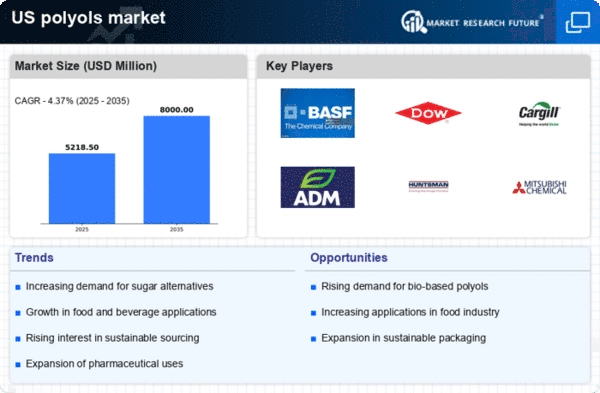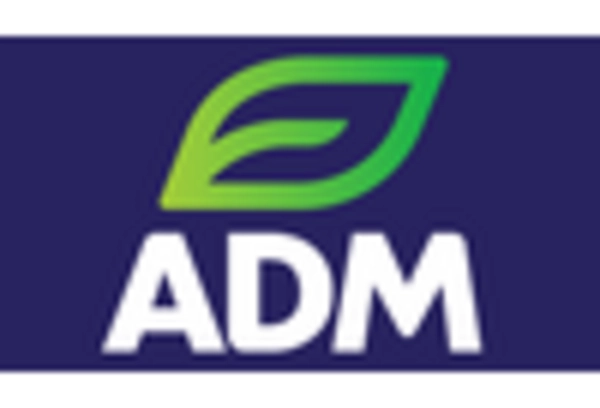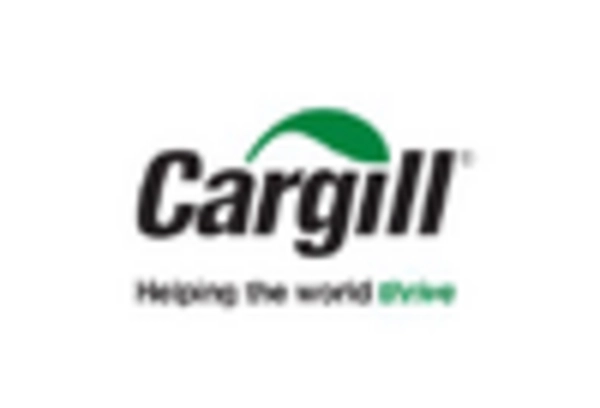The polyols market exhibits a dynamic competitive landscape characterized by innovation and strategic partnerships. Key players such as BASF SE (Germany), Dow Inc. (US), and Cargill Inc. (US) are actively shaping the market through their distinct operational focuses. BASF SE (Germany) emphasizes sustainability and innovation, particularly in bio-based polyols, which aligns with the growing demand for environmentally friendly products. Dow Inc. (US) is leveraging its extensive research capabilities to enhance product performance, while Cargill Inc. (US) is focusing on expanding its portfolio of natural polyols to cater to the food and beverage sector. Collectively, these strategies foster a competitive environment that prioritizes sustainability and product differentiation.In terms of business tactics, companies are increasingly localizing manufacturing to reduce lead times and optimize supply chains. The polyols market appears moderately fragmented, with several players vying for market share. This fragmentation allows for niche opportunities, particularly for companies that can innovate or provide specialized products. The collective influence of these key players is significant, as they drive trends in sustainability and product development, shaping the overall market structure.
In October Dow Inc. (US) announced a strategic partnership with a leading biotechnology firm to develop bio-based polyols aimed at reducing carbon emissions in production processes. This collaboration is likely to enhance Dow's product offerings and position it as a leader in sustainable solutions within the polyols market. The strategic importance of this partnership lies in its potential to meet the increasing regulatory pressures for greener products while appealing to environmentally conscious consumers.
In September Cargill Inc. (US) launched a new line of natural polyols derived from renewable sources, targeting the food and beverage industry. This move not only diversifies Cargill's product range but also aligns with the rising consumer preference for natural ingredients. The introduction of these products is expected to strengthen Cargill's market position and cater to the growing demand for healthier alternatives in food applications.
In August BASF SE (Germany) expanded its production capacity for polyols in North America, responding to the increasing demand from the automotive and construction sectors. This expansion is strategically significant as it allows BASF to enhance its supply chain efficiency and meet customer needs more effectively. The investment reflects a commitment to maintaining a competitive edge in a rapidly evolving market.
As of November current trends in the polyols market are heavily influenced by digitalization, sustainability, and the integration of artificial intelligence in production processes. Strategic alliances are becoming increasingly vital, as companies seek to leverage complementary strengths to enhance innovation and market reach. Looking ahead, competitive differentiation is likely to evolve from traditional price-based competition to a focus on innovation, technological advancements, and supply chain reliability. This shift underscores the importance of adaptability and forward-thinking strategies in navigating the complexities of the polyols market.
















